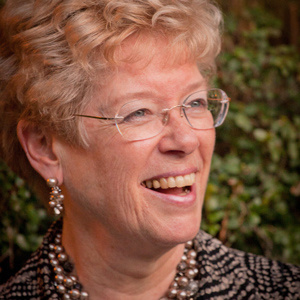Campus News
Astronomer Sandra Faber to receive honorary degree from Amherst College
Faber will receive an honorary degree from Amherst College during its commencement exercises on May 22.

Astronomer Sandra Faber will receive an honorary degree from Amherst College during its 195th commencement exercises on Sunday, May 22. Amherst President Biddy Martin will deliver the address during the ceremony, and Faber and the other honorees will speak in a series of public conversations.
A professor emeritus of astronomy and astrophysics at UC Santa Cruz, Faber is known for her pioneering research on the formation and evolution of galaxies, distant galaxy clusters, and the large-scale structure of the universe. She is also a leading authority on telescopes and astronomical instrumentation and has been closely involved with both the Hubble Space Telescope and the W. M. Keck Observatory in Hawaii.
Among her many contributions to astronomy is the Faber-Jackson relation, the first known structural scaling law for galaxies—in this case, the relation between the mass of a galaxy and the speed of stars that orbit within it. In addition, Faber’s work has uncovered huge irregularities in the expansion of the universe caused by the perturbing effects of gravity from superclusters of galaxies. With colleagues, she used the Hubble Space Telescope to penetrate the cores of galaxies, revealing massive black holes at their centers. She has led major efforts with both Hubble and Keck to survey thousands of distant galaxies to characterize and document the evolution of galaxies over the history of the universe.
Faber, who joined the UCSC faculty in 1972, holds a bachelor’s degree in physics from Swarthmore and a Ph.D. in astronomy from Harvard. She has received many awards and honors in recognition of her accomplishments, including the National Medal of Science, the Franklin Institute’s Bower Award and Prize for Achievement in Science, and two awards for lifetime scientific achievement, the Bruce Medal of the Astronomical Society of the Pacific and the Russell Prize of the American Astronomical Society. She is a member of the National Academy of Sciences, American Academy of Arts and Sciences, and American Philosophical Society.